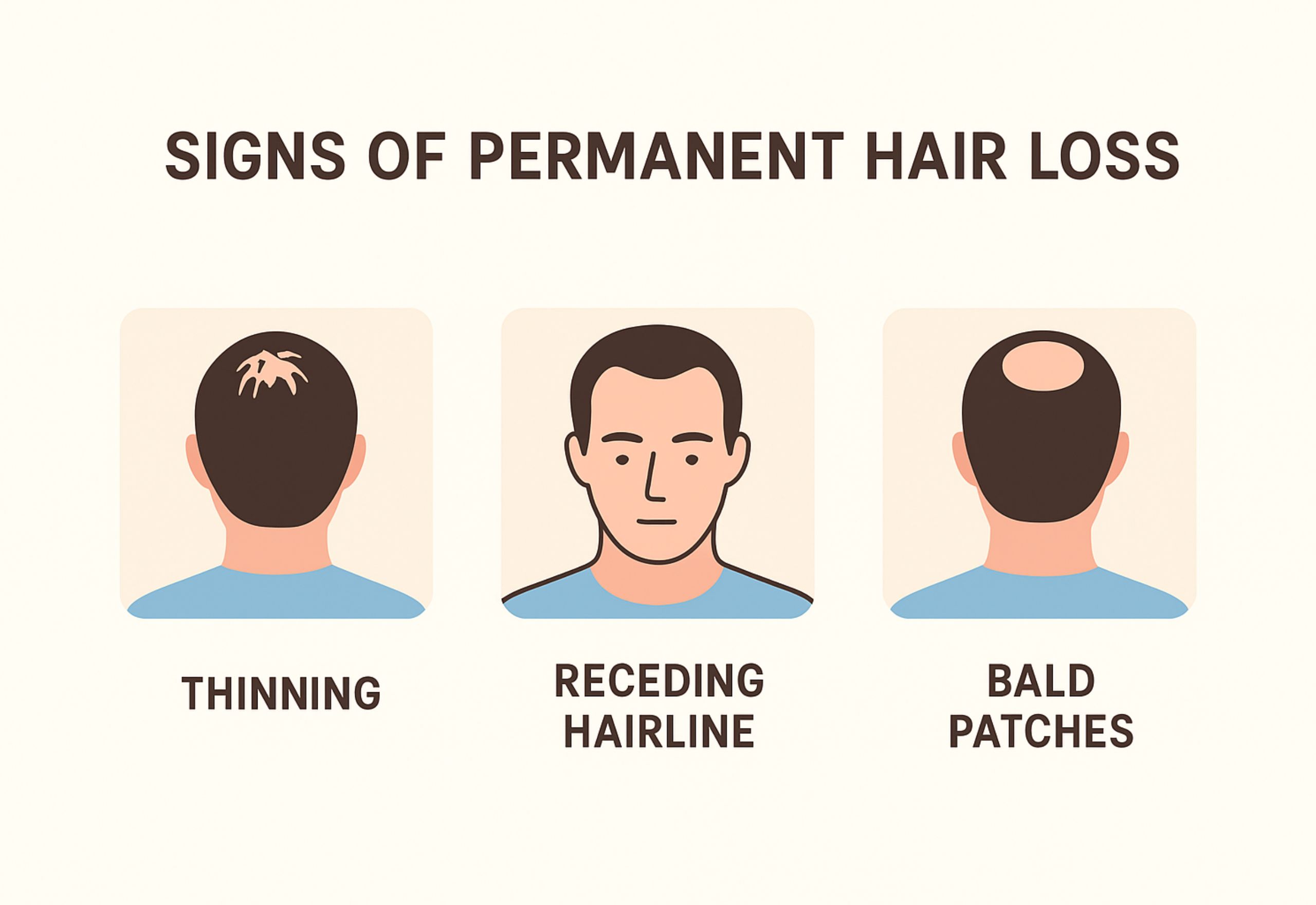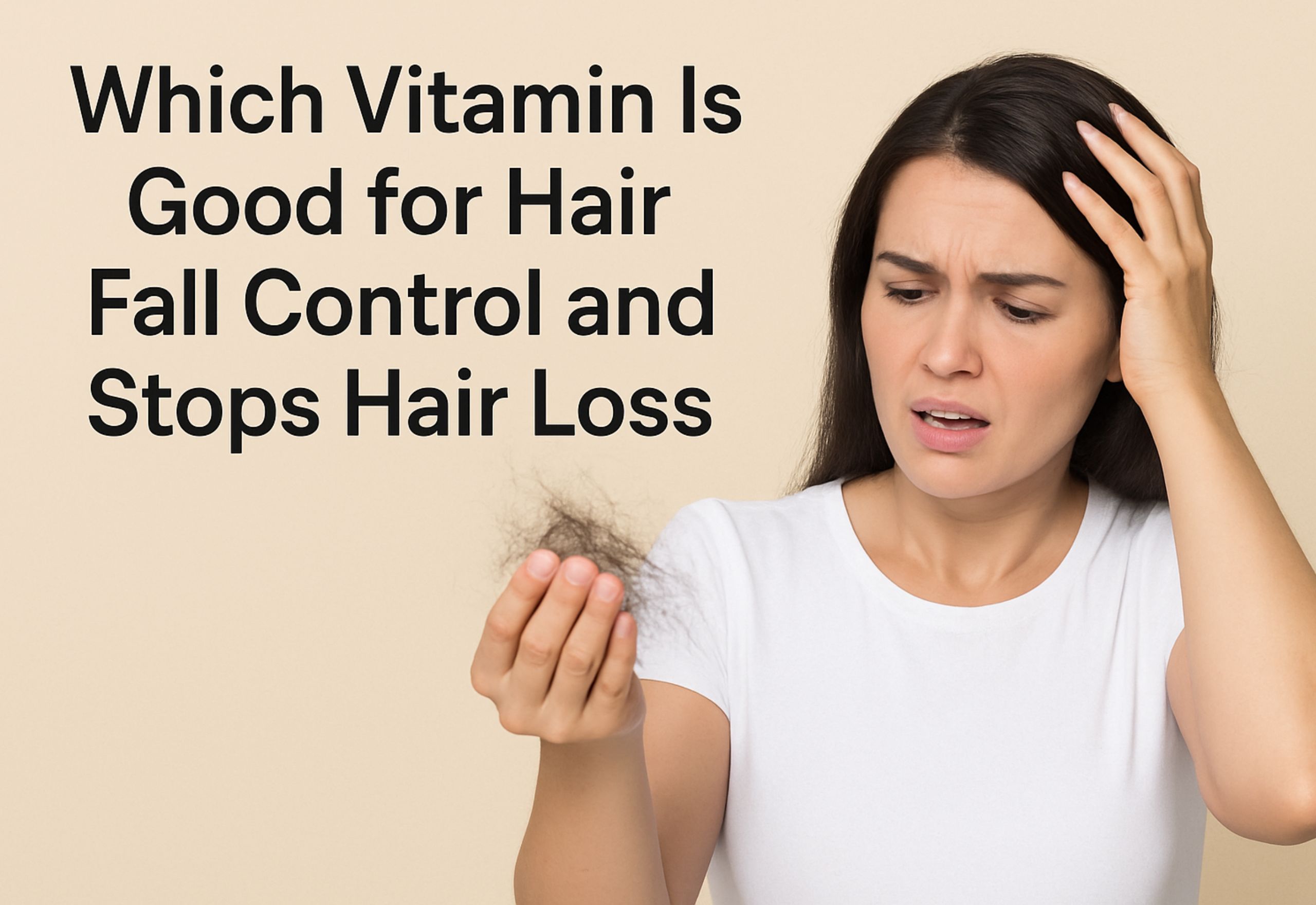Hair fall isn’t just an adult issue. Teenagers go through it too, and when it starts, it can feel like it’s coming out of nowhere. You might wake up and see hair on your pillow, notice more strands coming out when you brush, or find extra hair left behind in the shower. It can feel overwhelming, especially when you don’t know what’s causing it.
But here’s the truth: teenage hair fall usually has a reason. In most cases, it’s linked to diet, stress, changes in hormones, scalp conditions, or just the wrong products. The good news is that you can do something about it, and no, it doesn’t involve expensive treatments or ten different serums. A few simple habits can make a big difference.
Also Read: How To Treat Different Types Of Hair Damage
Start with What You’re Eating
Hair is part of your body, and it needs nutrients to stay strong. During your teen years, your body is growing fast, and if you’re not eating well, your hair may be the first thing to suffer. Thin, weak, or falling hair often comes down to what’s missing from your meals.
Here’s how to help:
1: Add iron-rich foods like leafy greens and lentils
2: Include protein every day: eggs, curd, nuts, seeds, or beans
3: Drink plenty of water, especially if you’re active
4: Cut back on packaged snacks, soda, and fried food
Your hair won’t thrive if your body isn’t getting the right fuel. It all starts there.
Be Gentle When You Wash
A harsh shampoo or daily washing with hot water can make things worse. The scalp gets irritated, natural oils are stripped away, and the hair becomes more fragile. Overwashing can also lead to dryness, especially if your shampoo contains strong chemicals.
Try these steps instead:
1: Wash your hair two or three times a week
2: Use a gentle shampoo designed for reducing hair fall
3: Avoid very hot water, lukewarm or cool is better
4: Don’t scrub your scalp too hard; massage gently
5: Rinse thoroughly so no shampoo or oil is left behind
A simple, calming wash routine keeps your scalp balanced and healthy.
Also Read: How To Remove Dandruff From Hair Step By Step Guide
Stop Pulling So Much
If you often tie your hair into tight ponytails or buns, or if you tug at knots while brushing, that constant pulling can lead to breakage. The hairline, especially near your forehead, is sensitive. When it’s stressed too much, it thins out.
Make a few easy changes:
1: Use a wide-tooth comb and go slow, especially after a wash
2: Loosen your hairstyles
3: Never brush wet hair aggressively
4: Clean your combs regularly and avoid sharing them
Hair fall from tension is totally avoidable. It just takes a gentler approach.
Use Oil the Right Way
Oiling the scalp once a week can help strengthen roots, improve blood flow, and reduce dryness. But more doesn’t always mean better. Leaving oil on too long or applying too much can do more harm than good.
Here’s a routine that works:
1: Warm a little coconut or almond oil, not too hot
2: Massage it into your scalp using your fingertips
3: Leave it on for around an hour
4: Wash it out fully with a mild shampoo
That’s it. No overnight oiling, no soaking your hair in it. Once a week is enough to see results over time.
Say No to Heat and Chemicals
Straighteners, curlers, and styling creams can all weaken young hair. These tools damage the outer layer of each strand, and once the damage sets in, hair starts to fall more easily. Teenage hair is still adapting and needs extra care, not experiments.
Better choices:
1: Let your hair dry naturally instead of using heat
2: Avoid chemical treatments like smoothening or straightening
3: Stick with simple, gentle products, nothing too strong
4: If you style your hair, make sure it doesn’t pull or stress the roots
Your hair isn’t meant to be reshaped every day. Let it grow the way it’s meant to.
Also Read: Hare Care Routine For Damaged Hair
Keep Your Scalp Clean
If your scalp stays oily, sweaty, or flaky for too long, it creates the perfect environment for buildup. That can block hair follicles and slow down growth. Dandruff and clogged pores are common reasons behind teenage hair fall.
What helps most:
1: Wash regularly, especially if you sweat a lot or play sports
2: Use an anti-dandruff shampoo if needed, but not too often
3: Let your scalp dry fully after a shower
4: Never scratch your scalp, even if it feels itchy
5: Rinse your hair well after oiling to avoid residue
A clean, calm scalp gives hair the space it needs to grow.
Don’t Brush Off Stress
School, exams, social media, friendships, stress shows up in more places than just your mood. It can also mess with your body’s natural rhythms, including how your hair grows. It’s easy to miss the connection, but it’s real.
To bring things back into balance:
1: Get at least eight hours of sleep every night
2: Take short breaks from screens, especially before bed
3: Spend time outdoors, even if it’s just for a short walk
4: Talk to someone when things feel heavy, a parent, teacher, or friend
When your mind starts to settle, your body follows. That includes your hair.
Also Read: Hard Water On Damaged Hair
Don’t Try Every Trend Online
It’s easy to get pulled in by videos promising miracle results. But trying a bunch of new products every week can confuse your scalp and throw off its natural balance. Some ingredients might not suit your hair at all, especially if they’re strong or full of fragrance.
Here’s what works better:
1: Stick with a basic routine, shampoo, conditioner, and oil
2: Read labels before using something new
3: Don’t mix too many products at once
4: If something stings, burns, or makes you itch, wash it off immediately
Trendy doesn’t always mean healthy. The simpler your routine, the easier it is to see what works.
When to Talk to a Doctor
If you’ve tried everything and your hair is still falling more than usual, there may be something going on beneath the surface. Conditions like low iron, thyroid issues, or scalp infections won’t improve with home care alone.
See a doctor or dermatologist if:
1: Your hair is falling out in clumps
2: You notice bald patches or sudden thinning
3: The scalp feels sore, red, or painful
4: Nothing changes after four to six weeks of consistent care
The sooner you check in, the easier it is to treat whatever’s going on.
Teen hair needs care, but it doesn’t need ten different products. What matters most is how you treat your body, your scalp, and your daily routine. The results don’t come overnight, but they do come.
Eat well and make sure your meals have the nutrients your hair needs. Get enough sleep, and give yourself time to rest when life feels busy. Wash your hair gently, oil it now and then, and avoid styling tools that do more harm than good. Let your hair be, and give it room to grow.
With the right care and a little patience, your hair can become fuller, stronger, and easier to manage again.



